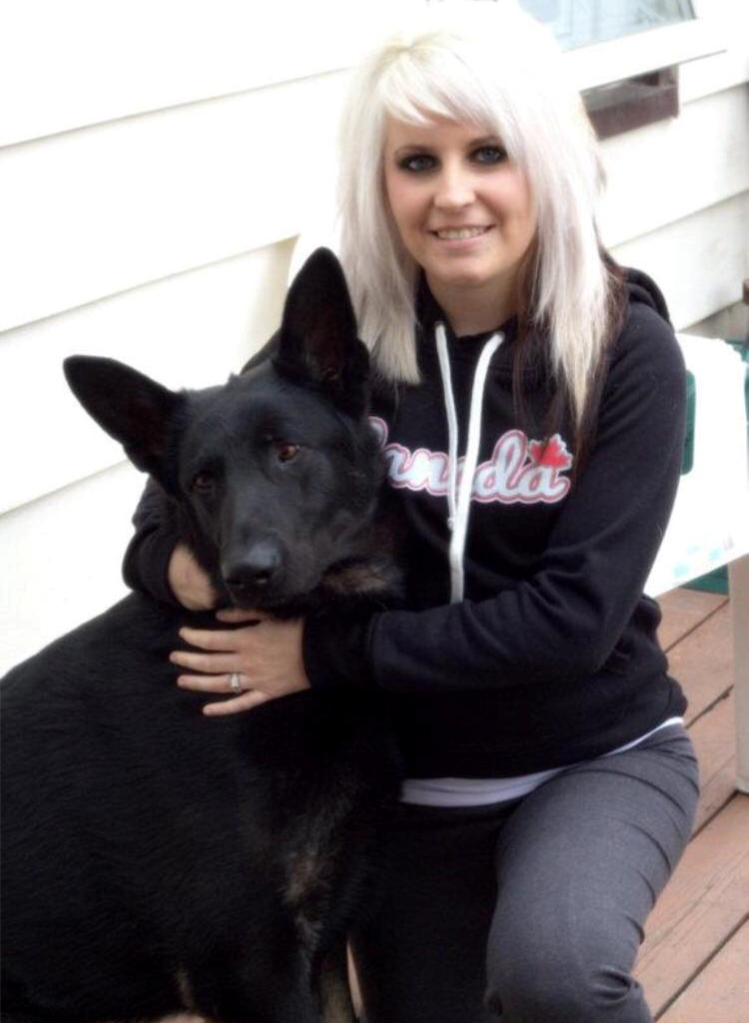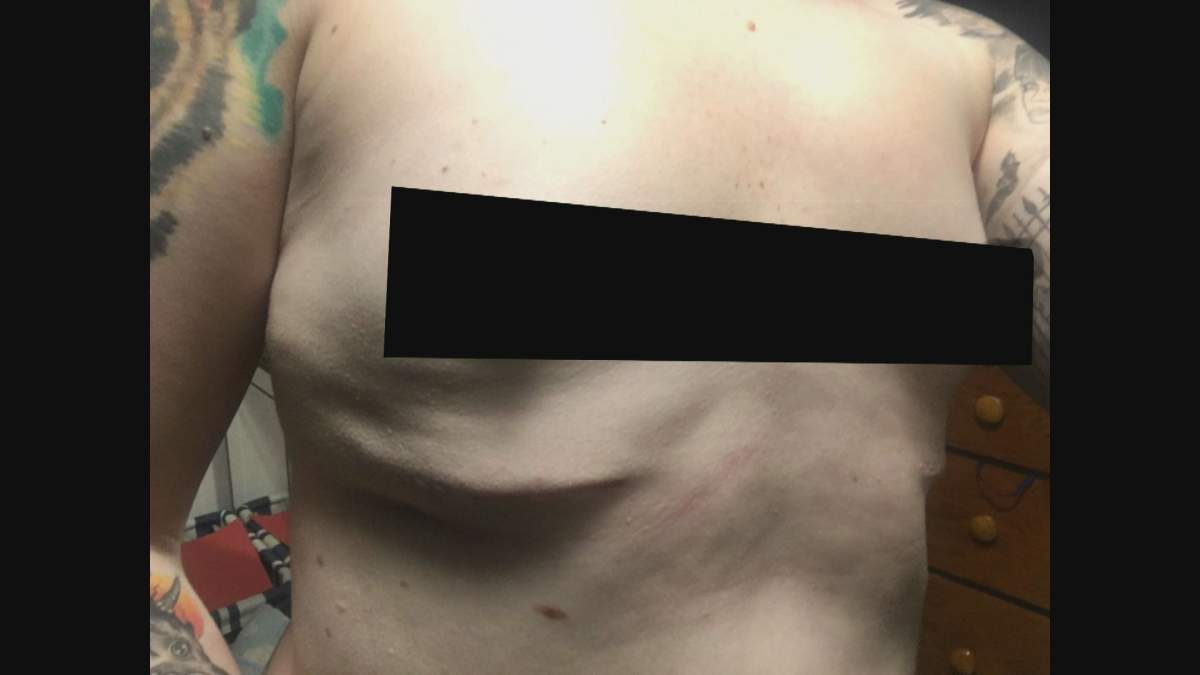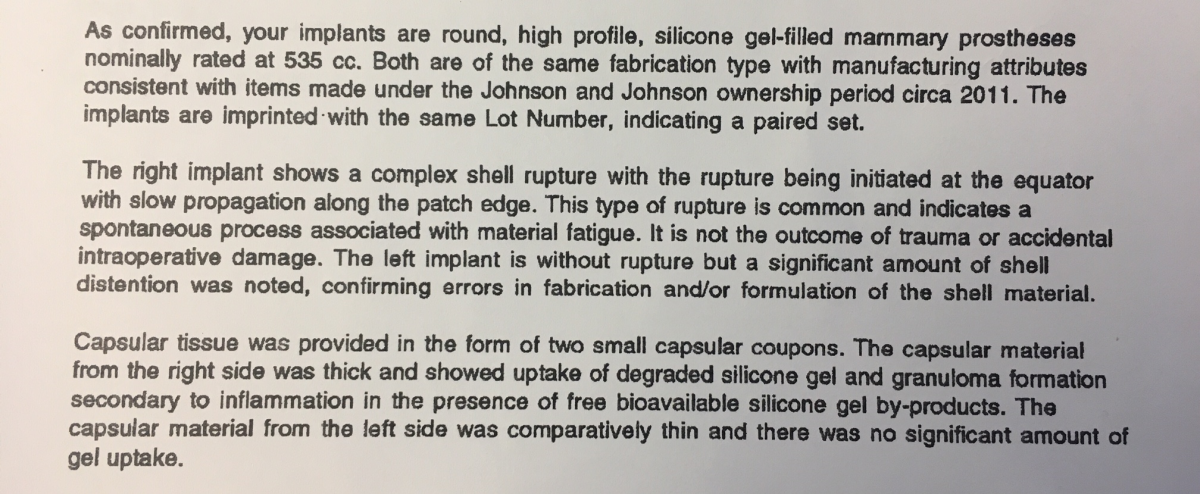A Winnipeg woman is hoping to help others by speaking out about the long list of problems she’s dealt with since getting breast implants.

Nikki Carruthers is among an increasing number of women across Canada and North America who have suffered health complications they believe are associated with their breast implants.
READ MORE: Bowmanville woman wants Health Canada to push awareness of ‘breast implant illness’
For years, the 29-year-old said, she wanted to get breast implants. She wanted to feel more comfortable in her own skin.
“I was so small. I had nothing to start off with,” she said. “I wanted to have a chest.”
In 2013, at the age of 24, Carruthers saved up enough money and booked her surgery.
She went from a 32AA to a 32DDD.
But it wasn’t long after when she started having severe chest pains and the swelling from surgery wasn’t going down. Just over a year later, she had a second surgery to relieve the pain in her chest. The implants had bottomed out.
“They dropped too low,” she said. “My nipples were really up high, they felt super low, they weren’t where they were supposed to be.”
Shortly after, Carruthers’ health started to deteriorate.

Get weekly health news
“Weird pain when you’re swallowing, brain fog, difficulty speaking,” Carruthers said. “The weirdest symptoms kept happening and nothing would make sense.”
Her medical chart shows she suffers from blackouts, memory loss, fainting, vomiting, thyroid problems, hypertension, heart palpitations, high-blood pressure, migraines, chest pain, ulcers, depression, anxiety and exhaustion. Carruthers said it’s so bad, she spends most days in bed.

Carruthers said her doctors couldn’t determine why she was suddenly always sick. She believes she is one of thousands of women who have breast implant illness (BII).
While no direct link has been made between breast implants and increasing autoimmune diseases, there have been several studies done detailing the connection.
Carruthers made the decision to have her implants taken out.

“I felt like I was on death’s doorstep at that point,” Carruthers said.
“I was like ‘I’m going to die or I’m going to get these out and I’m not going down without a fight.’ If there’s one thing I can do that’s in my power that I can do… I can get these out.”
She had them removed in September 2018. Carruthers said she was told by her surgeon there was a small hole in one implant.
She kept the implants and had them sent to Ottawa for further testing.
A former senior advisor for Health Canada reviewed her implants. Carruthers said the letter she received with the findings shocked her.
“One was a complete liquid goo… a jello mess,” she said. “It was not a small hole. It was completely exploded… it was disintegrated. It was mashed potatoes basically.”
The report showed the right implant had a complex shell rupture.
While there is still an ongoing medical debate over whether implants can cause these health issues, Carruthers is convinced her health problems are a direct result of her implants.
READ MORE: Breast implant safety under review by U.S. authorities
Meanwhile, medical researchers are trying to determine whether there is a connection between silicone from implants and immune system disorders.
For years, implant manufacturers, surgeons and health regulators have dismissed the possibility.
But in late March, the FDA announced it would begin studying whether certain materials used in breast implants, metal hips and other devices could trigger health problems in patients.
“We believe the current evidence, although limited, suggests some individuals may be predisposed to develop an immune/inflammatory reaction when exposed to select materials,” the statement read.
A move that Carruthers said brings her hope.





















Comments